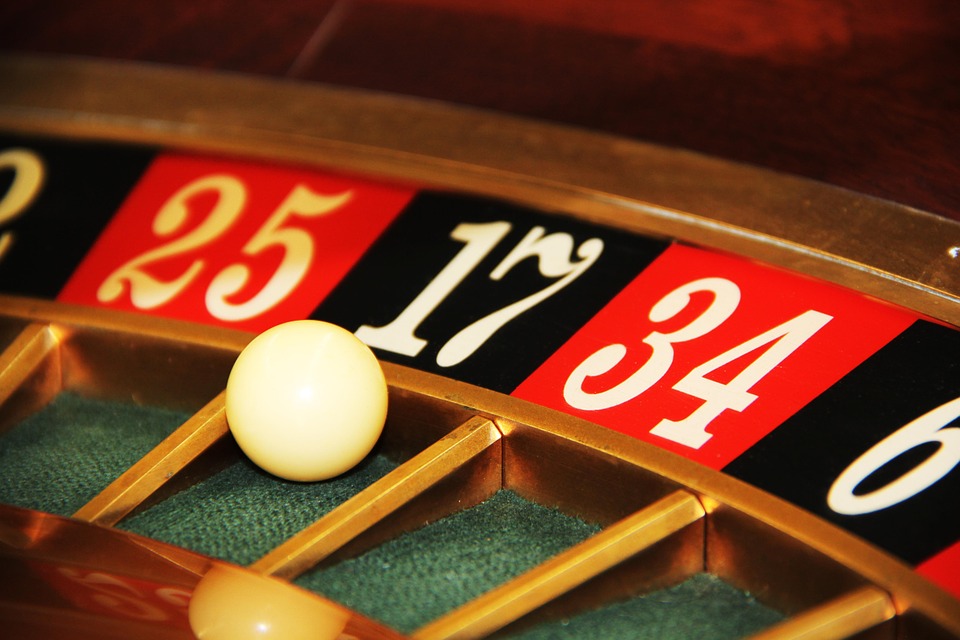Roulette Machine Manipuleren
Roulette is a game of chance, and as such is entirely reliant on odds. So, it’s well worth knowing how these work before you decide which way to bet. In coin-operated machine machines designed according to the invention, the factors of the random win multiplier are graded, for example, in the following divisions: The statistical average of payouts actually made likewise roulette to 12, that is to say, even when the additional roulette decisions generator is used, the statistical average remains at the win multiplier of Thus, if 15 stakes are placed on bergmann number, in this case the player receives only ten times or eight times his. About product and suppliers: 2,609 roulette machine products are offered for sale by suppliers on Alibaba.com, of which coin operated games accounts for 14%, other gambling products accounts for 9%, and gambling tables accounts for 1%.
A wide variety of roulette machines for sale options are available to you, There are 211 suppliers who sells roulette machines for sale on Alibaba.com, mainly located in Asia. The top countries of suppliers are China, Taiwan, China, from which the percentage of roulette machines for sale supply is 93%, 5% respectively. How to Win at Roulette with the Best Roulette Strategy, all the resources here: Updated and Easier Strategy: https://www.y.
Administrator
If you get a chance to look carefully, there's just something 'not right' about the wheel and the ball. I'm leaning toward what I said earlier, that a computer determines the result, and the ball and wheel are merely a mechanical representation of the outcome. It might use timing to get the ball close to where it must be, and then a magnet to set it in the right slot. If I remember, the ball doesn't 'bounce around'; it spins and then 'drops' into a slot.
Very interesting. For comparison, I've observed the domed e-roulette (not at a California casino) and it always bounces around like a regular roulette wheel. The occasional spin is quick with little to no bouncing but most are more drawn out with significant bouncing. The profile of the slots is a bit deeper than the usual live-dealt wheel, which they are probably able to do because there is no betting allowed after the spin has started. But really it is the exact same as the regular game, except without a human dealer. There is definitely nothing strange about the spin.
Now, if it always simply spins and drops immediately, it sounds like it is predetermined. Pretty crazy that they were able to do that in a technical sense and make it look somewhat real. Of course its mathematically the same as normal roulette, assuming they use a RNG, but superstitious players will not like what this machine does if they find out.
I do not understand why California has these useless laws on the books that force things like this. Is it really that hard to repeal them? It should simply be a matter of procedure, I can't imagine any opposition to it.
http://www.twinriver.com/virtualgames.php
(Yuck Double Zero)
But it must be something with a magnet...those slots on each number look interesting. I'm definitely going to make a trip sooner rather than later to see if I can figure out how it works...
Trying to do an Internet search to find out the reasons for these things seem to be impossible. At best, I could only determine that the only reason Arizona casinos do not have live craps and live roulette is simply because they haven't been approved. (Although I did find a news article from a year ago that it was proposed to state legislature to allow craps and roulette. However, I could not find out whatever happened to this proposal.)
Trying to find the same information for California was doubly difficult. About the only thing I could find were people who 'claim' to know the reason, but with no factual information. And a quick peruse through the California statutes was no help.
 However, I did find something interesting while reading one of the tribal gaming compacts. Specifically:
However, I did find something interesting while reading one of the tribal gaming compacts. Specifically:IV. TESTING OF GAMING DEVICES
A. The following new Section 7.5 is added as follows:
Section 7.5. Testing of Gaming Devices.
(a) No Gaming Device may be offered for play unless:
...
(ii) The software for the game authorized for play on the
Gaming Device has been tested, approved and certified
by an independent or state governmental gaming test
laboratory (the “Gaming Test Laboratory”) as operating
in accordance with either the standards of Gaming
Laboratories International, Inc. known as GLI-11 and
GLI-12, or the technical standards approved by the State
of Nevada, or such other technical standards as the State
Gaming Agency and the Tribal Gaming Agency shall
agree upon, ...
(Edited by me to highlight what I want to show.)

Turns out that Gaming Laboratories International has a website. http://www.gaminglabs.com/default.asp and their information is public knowledge.
According to their own PDF file on GLI-11:
4.3.10 Mechanical Based RNG Games. Mechanical based RNG games are games that use the laws of physics to generate the outcome of the game. All mechanical based RNG games must meet the requirements of this document with the exception of Sections 4.3.4, 4.3.5, and 4.3.9 that dictate the requirements for electronic random number generators. In addition, mechanical based RNG games must meet the following rules:
a) The test laboratory will test via PC communications multiple iterations to gather enough data to verify the randomness. In addition, the manufacturer may supply live data to assist in this evaluation;
b) The mechanical pieces must be constructed of materials to prevent decomposition of any component over time (e.g., a ball shall not disintegrate);
c) The properties of physical items used to chose [sic] the selection shall not be altered; and
d) The player shall not have the ability to physically interact or come into physical contact or manipulate the machine physically with the mechanical portion of the game.
Note: The laboratory reserves the right to require replacement parts after a pre-determined amount of time for the game to comply with Rule 4.3.10(b) above. In addition, the device(s) may require periodic inspections to ensure the integrity of the device. Each mechanical based RNG game shall be reviewed on a case-by-case basis.
Based on their own hype, verification by their company will virtually assure acceptance of a gambling machine under most jurisdictions.
Anyway, it would appear that this concept of a 'mechanical based RNG' is what would allow these virtual roulette machines to be accepted by California and Arizona. The requirement of Rule 4.3.10 would also explain why the ball and wheel are kept apart from the players terminals, as well as being completely enclosed (at least, the ones I've seen are like that). So it seems that nobody tried to find a loophole in what kind of games were allowed, but rather found a loophole on what could be classified as an RNG.
I think I see the relevant rule change between version 1.3 and version 2.0 of the standard that allowed this roulette game to be approved.
Version 1.3 required an independent party verify that the machines are not affected by magnetic interference. Version 2.0 removes this requirement and the says that the manufacturer is ultimately responsible for the integrity of the game, and the independent analyst only has to do a cursory review of the documents submitted.
A lot of regulations go back to the old axiom that you can't prove a negative. Under the old regulations you can never prove that a device with a magnet cannot be interfered with. Under the new regulations they only certify that the game withstood the tests that were performed.
It seems like a subtle difference, but typically what happens is that the manufacturer simply avoids magnets and balls in his design, because he knows that you can always create a test that will interfere. Under the new regulations he only has to show that it would be unreasonable for a casino patron to have such a device in his coat pocket.
If I haven't beaten this point to death enough, you would be unlikely to design a gaming machine that uses magnets and balls that could withstand interference from the magnet in this picture.
However, this industrial magnet may also be a problem. The independent regulatory agency may find a problem with this magnet and not certify the device. Whereas if you put the certification responsibility on the manufacturer he might successfully write up a review that the gambling device is immune to magnetic interference from any reasonable magnet that a patron could carry into a casino.
We had a similar problem with active sonar and whales and dolphins. Most animals can easily outswim a navy vessel while it is operating in surveillance mode. It is easy to acknowledge that if an animal is 2 yards from the transducer projecting at full power it will get permanent hearing damage if not worse. You can try to argue that it is unnatural for an animal to swim that close to something projecting that much acoustic energy, just as it would be unreasonable to think that a teenager could get so drunk that he falls asleep on a commercial loudspeaker. But it is impossible to prove a negative. Lawyers use something called the precautionary principle which if properly used will prevent almost any design from being approved.

Every roulette player has but one goal in mind, and that is to learn how to beat the roulette wheel. Some experts say that you only need to follow one rule, and that is to cheat in the game. A lot of players have tried it before and some were able to get away with it successfully, while the others got caught and eventually got banned from playing in the casino. You might wonder, what do roulette players need to do to be able to cheat on the game? Can a device with electronic roulette cheats help? How does it work?
Understanding an Electronic Roulette Cheats Device
Over the years, roulette has evolved from a very simple game that gamblers can only plan in traditional land based casinos, to a game that they can access without leaving their homes. Roulette has definitely gotten more high tech, with the game becoming available to players online.
Roulette Machine Manipuleren Videos
Obtaining electronic cheats also became a lot easier. Doing a simple online search will point you to several websites that can provide you with either a computer program or gadget that you can use. Take note, however, that if you have a gadget that does not have a program or a program that does not have a gadget, you simply have nothing. If you want to learn how to beat the roulette wheel, you have to understand that to be able to come up with an excellent electronic cheat, you must have an effective program.
Finding and buying a device is really easy. You can purchase it online. In fact, there is a device sold for £1,000, which claims to provide an advantage of around 20 to 80 percent to roulette players. The device works by providing players with the most probable place on the wheel that the ball may drop when it stops spinning. A number of data is gathered and analyzed. The data are recorded in the device and the program installed on the device is responsible for analyzing it.
Parts of the Electronic Device
Before you use this device for playing roulette, you need to know the parts of the device and what they are used for:
- Clicker – The clicker monitors the speed of both the roulette wheel and roulette ball. The data gathered is sent to the computer, which in turn analyzes the data.
- Computer – Is a very small device, which must fit into a cigarette lighter or your mobile phone.
- Earpiece – It is where the results of the data analyzed by the computer are relayed to the player.
Know the Consequences of Your Action

Even if you know that you have a higher chance of winning at roulette using an electronic roulette cheat, you must think about the consequences of your action before you finally decide to buy one. If you use this device inside a casino, there is a high chance that you will eventually get caught.
The use of any device while playing roulette in a land based casino is not actually illegal. Just make sure that your device will not interfere with the spinning of the wheel and how the ball will land on the wheel. Nevertheless, you have should be aware, that most casinos will not like it if they catch you using a cheating device. This can get you banned from your favorite casino, and they may also refuse to pay out any of your winnings.
Should You Cheat or Not
It is the ultimate goal of every roulette player to beat the roulette wheel. If you are comfortable with using electronic roulette cheats, then by all means make use of it. However, if you still want to win at roulette, but not by using cheats, you make use of roulette tips that will help you win winning more games.
Just remember that when playing a game of roulette, you must not only aim at winning more games. You must also enjoy what you are doing. After all, roulette is a very exciting game, and if you tend to stress too much about the winning, you will most likely forget about enjoying the game.